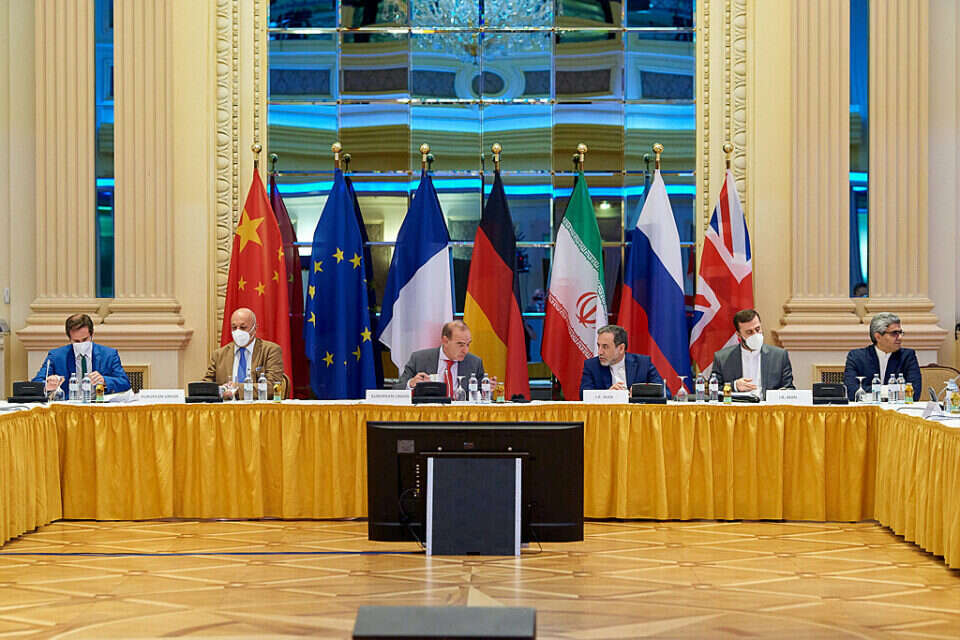Things need to be put on the table: Israel is unable to launch a campaign in Iran to eliminate the nuclear project.
This option exists mainly in media studios.
Of course, it is also present in the political discourse of senior members of the defense establishment, who claim - against the background of the possible resumption of nuclear talks - the freedom of action that Israel has and the military option available to it.
This stated and official position is almost self-evident.
It's part of the political game.
Israel cannot transmit weaknesses and defeats to the outside world.
In view of the nuclear threat and the long-standing strategy it has adopted, it must convey determination and firmness.
In practice not only is an open war with Iran an operatively great thing even over the regional power of the Middle East, but it is doubtful that Israel desires stability and economic prosperity will be able to withstand the results of such a campaign, especially the next day. Using long-range missiles and unmanned aerial vehicles.
Then the limited inclusion capacity of the country’s citizens may resonate with the sensations remembered from the corona restrictions.
This bad news regarding the space of limited operational options vis-à-vis Iran is joined by a really uncomfortable strategic picture.
The progressive United States will not do for Israel the undeclared work of destroying Iran's nuclear facilities, even though it is the only one capable of succeeding in such a mission. As it currently stands, the Biden administration is the worst for Israel even compared to the Barack Obama administration.
The American aversion to involvement in the Middle East and his interest in withdrawing his hands from engaging in this space, similar to the hasty model of withdrawal from Afghanistan, are directing him directly towards a new nuclear agreement with Tehran.
It is an agreement that will not only turn Iran into a nuclear threshold state but will free it from the sanctions regime that previous President Trump has enforced, which will surely make Iran a regional power for all intents and purposes.
Under these circumstances, Israel is indeed making a last-ditch effort and is almost desperate to prevent the scenario and rather to squeeze a few more drops from the ever-shortening time.
But precisely because of the paucity of operational possibilities and the certain direction in which Iran is moving, accustoming the international system to the reality of a threshold state, a rethinking of Israel's overall strategy on the issue is required.
Iran as a nuclear threshold is not particularly sympathetic.
But the threat posed by it is not limited to the possibility that the Islamic ayatollahs' regime will make active and direct use of nuclear weapons against Israel.
This is an extreme scenario and given that Israel will adopt its own nuclear deterrence policy in this situation, the likelihood that it will materialize is quite slim.
The more realistic danger in Iran's situation as a threshold state concerns the possibility of expanding its regional freedom of action and especially the utilization of the umbrella it will provide by players destabilizing the neighborhood, such as Hezbollah in Lebanon and Hamas in the Gaza Strip.
These are located near the borders of Israel and threaten its security on a regular basis mainly through conventional missile weapons.
Making Iran a threshold state will not only erode Israeli deterrence and strengthen the willingness of those factors to challenge it on an ongoing basis, but may also make Israel's confrontation with the challenge of security reality doubly difficult.
The Israeli hourglass is ticking, therefore, through two time axes that define two types of threats.
One, the time left until Iran becomes a nuclear threshold state;
And second, the time left until the elements of the activist camp in the region, which directly threatens Israel, will enjoy an Iranian strategic umbrella.
While Israel faces this dual challenge when it is virtually devoid of effective tools to deal with the Iranian nuclear threat, it is certainly equipped with the tools to deal with the second threat which is the one that will define for it the security reality in the Middle East the day after the bombing.
Dismantling this threat - or at least parts of it - is a kind of strategy that has not yet been seriously considered in Israel, and the dilemma, therefore, is not limited to the question of the possibility of an attack on Iran, although in the choice between direct confrontation with Iran and neutralization. The direct threats to Israel, which could become an even more acute problem after Iran crosses the Rubicon.
Were we wrong?
Fixed!
If you find an error in the article, we will be happy for you to share with us and we will correct it

